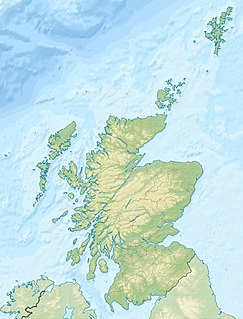 W
WThe Battle of Aberdeen was fought on 14 May 1646 during the Wars of the Three Kingdoms. George, Marquis of Huntly the commander of a Royalist army, defeated a force of Covenanters under the command of Hugh, Lord Montgomerie.
 W
WThe Battle of Aberdeen, also known as the Battle of Justice Mills and the Crabstane Rout, was an engagement in the Wars of the Three Kingdoms which took place outside the city of Aberdeen on 13 September 1644. During the battle, Royalist forces led by James Graham, Lord Montrose routed an army raised by the Covenanter-dominated Parliament of Scotland under Robert Balfour, 2nd Lord Balfour of Burleigh.
 W
WThe Battle of Alford was an engagement of the Scottish Civil War. It took place near the village of Alford, Aberdeenshire, on 2 July 1645. During the battle, the Royalist general James Graham, 1st Marquess of Montrose defeated the forces of the Covenanter-dominated Scottish government, commanded by William Baillie.
 W
WThe Battle of Auldearn was an engagement of the Wars of the Three Kingdoms. It took place on 9 May 1645, in and around the village of Auldearn in Nairnshire. It resulted in a victory for the royalists, led by the Marquess of Montrose and Alasdair MacColla, over Sir John Urry and an army raised by the Covenanter-dominated Scottish government.
 W
WThe Battle of the Brig of Dee took place on 18–19 June 1639 at the Bridge of Dee in Scotland, and was the only serious military action of the First Bishops' War. It featured a Royalist force under James Gordon, 2nd Viscount Aboyne, opposed by Covenanters led by James Graham, 5th Earl of Montrose, and resulted in a Covenanter victory.
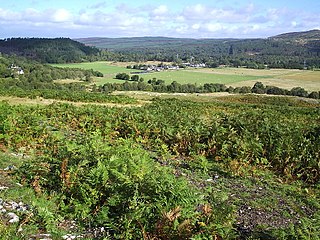 W
WThe Battle of Carbisdale took place close to the village of Culrain, Sutherland, Scotland on 27 April 1650 and was part of the Wars of the Three Kingdoms. It was fought by the Royalist leader James Graham, 1st Marquess of Montrose, against the Scottish Government of the time, dominated by Archibald Campbell, 1st Marquess of Argyll and a grouping of radical Covenanters, known as the Kirk Party. The Covenanters decisively defeated the Royalists. The battlefield has been inventoried and protected by Historic Scotland under the Scottish Historical Environment Policy of 2009. Although Carbisdale is the name of the nearest farm to the site of the battle, Culrain is the nearest village.
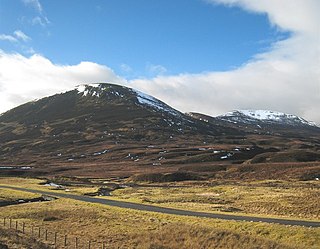 W
WThe Battle of Dalnaspidal occurred on 19 July 1654 during the Wars of the Three Kingdoms. It was one of the last engagements in the war bringing an end to the Royalist rising of 1653 to 1654.
 W
WThe Battle of Dunaverty involved a battle and the siege of Dunaverty Castle in Kintyre, Scotland, in 1647. The events involved the Covenanter Army under the command of General David Leslie on one side and 200–300 Highland troops under the command of Archibald Og of Sanda on the other.
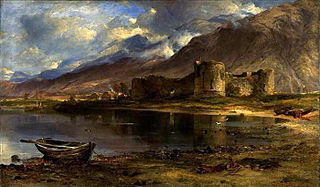 W
WThe Battle of Inverlochy occurred on 2 February 1645 during the Wars of the Three Kingdoms when a Royalist force of Highlanders and Confederate Irish troops under the overall command of James Graham, 1st Marquess of Montrose, routed and largely destroyed the pursuing forces of Archibald Campbell, 1st Marquess of Argyll, who had been encamped under the walls of Inverlochy Castle.
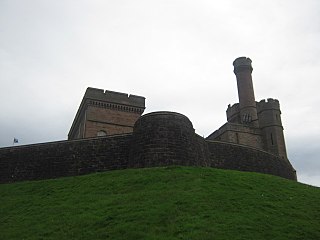 W
WThe siege of Inverness took place in 1649 as part of the 17th-century Scottish Civil War that was, in turn, part of the Wars of the Three Kingdoms.
 W
WThe siege of Inverness of 1650 was part of the Scottish Civil War that formed part of the Wars of the Three Kingdoms. Lewis Gordon, 3rd Marquess of Huntly, who was operating under the leadership of the royalist James Graham, 1st Marquess of Montrose, unsuccessfully laid siege to Inverness Castle which was being held by Covenanters of the Clan Fraser of Lovat under Sir James Fraser of Brea.
 W
WThe Battle of Kilsyth, fought on 15 August 1645 near Kilsyth, was an engagement of the Wars of the Three Kingdoms. The largest battle of the conflict in Scotland, it resulted in victory for the Royalist general Montrose over the forces of the Covenanter-dominated Scottish Parliament, and marked the end of General William Baillie's pursuit of the Royalists.
 W
WThe Battle of Lagganmore took place in 1646 at Lagganmore in Glen Euchar, west of Loch Scammadale. It was part of the Wars of the Three Kingdoms, though in this case the battle, which was fought largely between Highland clansmen, incorporated a long running feud between Clan MacDonald and Clan Campbell.
 W
WThe Battle of Mauchline Muir was an engagement fought on 12 June 1648 between two rival factions of the Covenanters of Scotland. On one side where those who favoured The Engagement, known as Engagers, and those who were opposed to the Engagement, and known as the Kirk party.
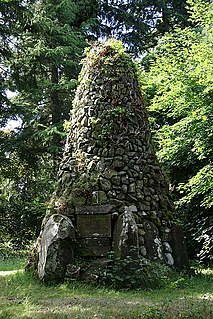 W
WThe Battle of Philiphaugh was fought on 13 September 1645 during the Wars of the Three Kingdoms near Selkirk in the Scottish Borders. The Royalist army of the Marquis of Montrose was destroyed by the Covenanter army of Sir David Leslie, restoring the power of the Committee of Estates.
 W
WThe Battle of Rhunahaorine Moss was a battle between Covenanters led by General David Leslie and Royalist forces led by Alasdair Mac Colla Chiotaich at Rhunahaorine Point, Kintyre, Scotland on 24 May 1647. The Covenanters defeated the Royalists.
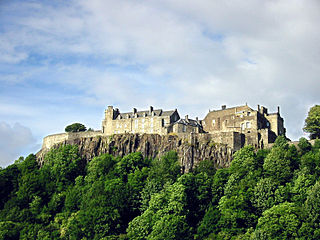 W
WThe second Battle of Stirling was fought on 12 September 1648 during the Scottish Civil War of the 17th century. The battle was fought between the Engagers who were a faction of the Scottish Covenanters under the command of George Munro, 1st of Newmore and who had made "The Engagement" with Charles I of England in December 1647, against the Kirk Party who were a radical Presbyterian faction of the Scottish Covenanters who were under the command of Archibald Campbell, 1st Marquess of Argyll.
 W
WThe Battle of Tippermuir was the first battle James Graham, 1st Marquis of Montrose, fought for King Charles I in the Scottish theatre of the Wars of the Three Kingdoms. During the battle, Montrose's Royalist forces routed an army of the Covenanter-dominated Scottish government under John Wemyss, Lord Elcho. The government side took heavy losses.
 W
WThe Battle of Tullich also known as the Battle of the Pass near Tullich occurred on 10 February 1654 in Tullich, Scotland, during Glencairn's Rising.